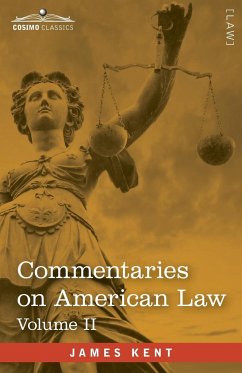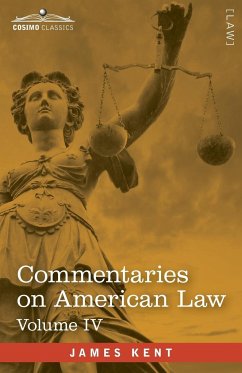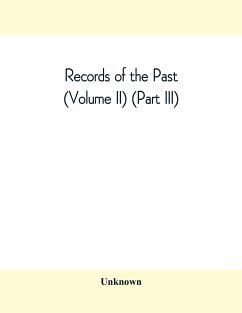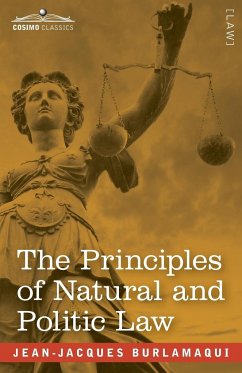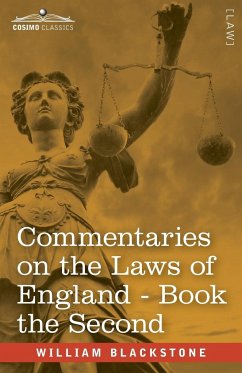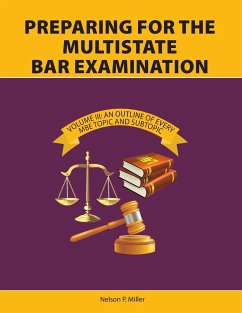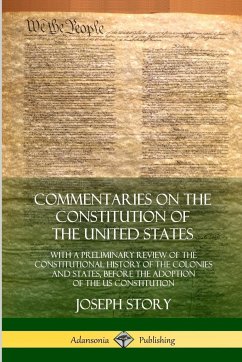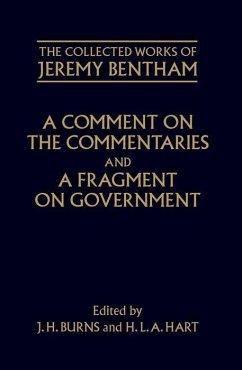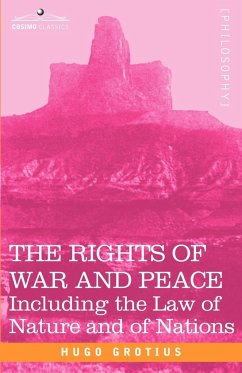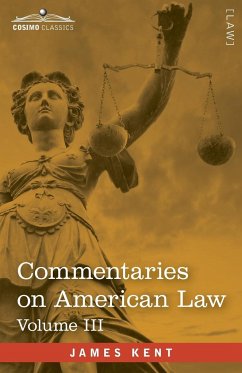
Commentaries on American Law, Volume III (in four volumes)

PAYBACK Punkte
17 °P sammeln!
"""Though the marine law of modern Europe had its foundations laid in the jurisprudence of the ancients, there is no certain evidence that either the Phoenicians, Carthaginians, or any of the states of Greece, formed any authoritative digest of naval law." -James Kent, Commentaries on American Law Volume III (1826) Commentaries on American Law Volume III (1860) by James Kent is the tenth edition and originally published in 1826, part of a four-volume set. All four volumes were adapted from the lectures Kent gave at Columbia Law School and are rich with historical references. The third volume c...
"""Though the marine law of modern Europe had its foundations laid in the jurisprudence of the ancients, there is no certain evidence that either the Phoenicians, Carthaginians, or any of the states of Greece, formed any authoritative digest of naval law." -James Kent, Commentaries on American Law Volume III (1826) Commentaries on American Law Volume III (1860) by James Kent is the tenth edition and originally published in 1826, part of a four-volume set. All four volumes were adapted from the lectures Kent gave at Columbia Law School and are rich with historical references. The third volume contains eleven lectures which continue the discussion of personal property from volume two and begin discussion of real property. There is intriguing historical primary source information in the section on Indian rights and colonization. Considered by some as the principal interpretation of American law, this book is for those interested in the history and foundation of law.""





